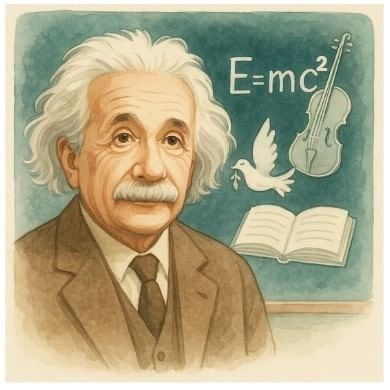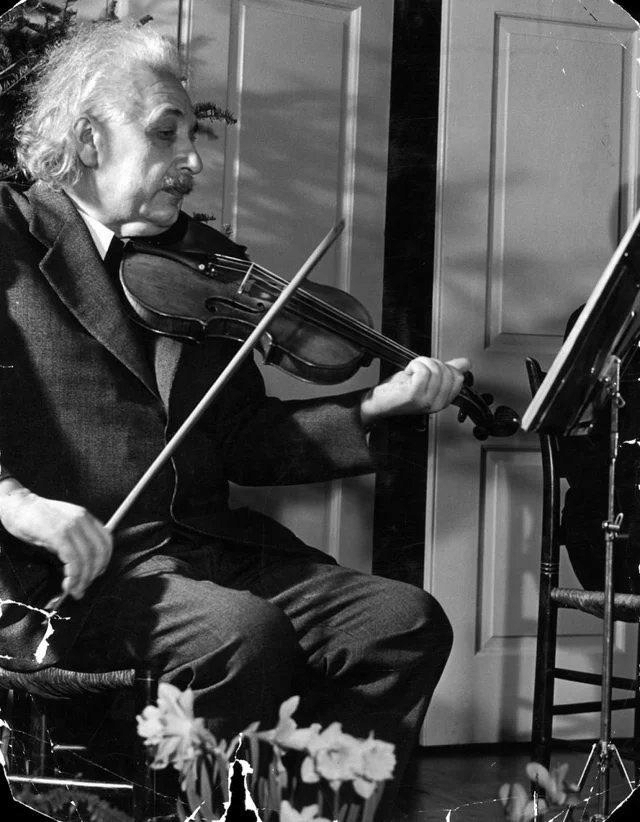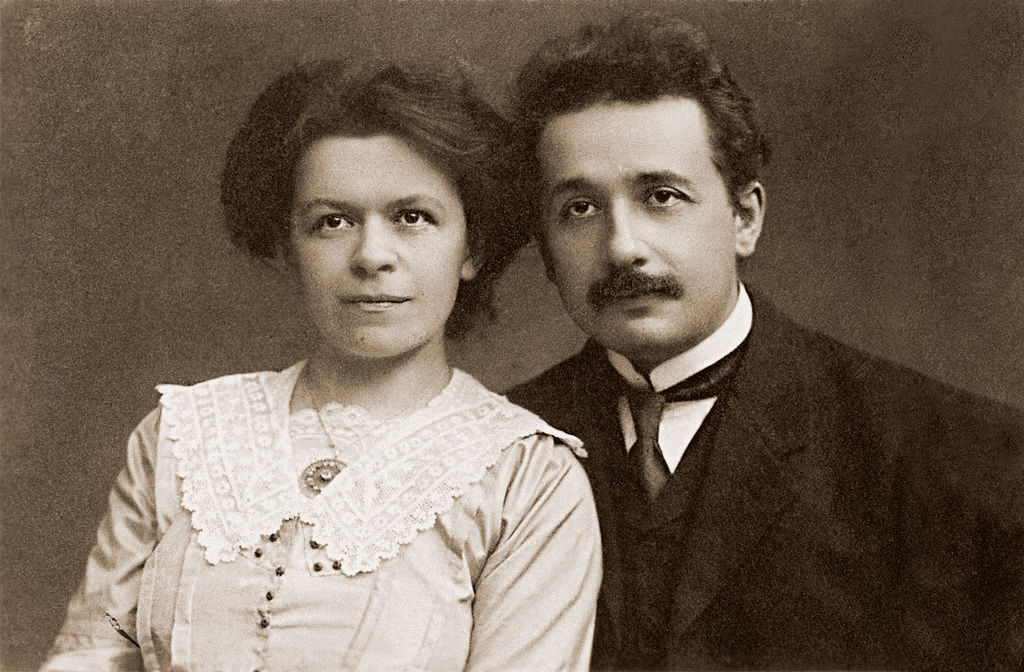Character Sketch: A Truly Beautiful Mind | English Class 9 PDF Download
| Table of contents |

|
| Character Sketch of Albert Einstein |

|
| Character Sketch of Mileva Maric (Einstein’s first wife) |

|
| Character Sketch of Einstein’s Mother |

|
| Character Sketch of Einstein’s Teachers |

|
Character Sketch of Albert Einstein
Albert Einstein is widely recognised for his extraordinary intellect and deep passion for peace. His groundbreaking ideas revolutionised the field of physics, especially with his theory of relativity and his work on gravity.
 From a young age, Einstein valued personal freedom and felt constrained by the strict rules at his school in Munich. Seeking more independence, he transferred to a more liberal school in Switzerland, where he excelled. His aversion to rigid control became even more apparent when he fled Nazi Germany, vehemently opposing all types of dictatorship.
From a young age, Einstein valued personal freedom and felt constrained by the strict rules at his school in Munich. Seeking more independence, he transferred to a more liberal school in Switzerland, where he excelled. His aversion to rigid control became even more apparent when he fled Nazi Germany, vehemently opposing all types of dictatorship.
Einstein’s interests extended beyond science; he had a deep love for the arts and literature. Einstein was not only a brilliant scientist but also a compassionate humanitarian. He was deeply troubled by the destructive potential of science, especially after the atomic bombs were dropped on Hiroshima and Nagasaki. This event led him to advocate for world peace, and he spent his later years promoting democracy and calling for a world government.

Einstein was honest and sensitive, which often led to conflicts with teachers who preferred memorisation over real understanding. His endless curiosity led to many important discoveries, but even with worldwide fame, he stayed humble and disliked too much praise.
In essence, Albert Einstein was not just a genius in the realm of science; he was a man who cared deeply for humanity, valued freedom and remained humble throughout his life. His love for learning, and music, and his commitment to peace make him a truly remarkable and multidimensional figure.
Character Sketch of Mileva Maric (Einstein’s first wife)
Mileva Maric was a fellow student and Einstein’s first wife. She was a highly intelligent woman and one of the few females of her time to attend university and earn a degree. She shared Einstein’s passion for science, and they supported each other as intellectual partners. However, her life changed over time. She took on the role of a housewife, which made her unhappy and strained her relationship with Einstein. Though she played a part in his intellectual journey, their marriage eventually fell apart, leading to their divorce.

Character Sketch of Einstein’s Mother
Einstein’s mother was a practical and protective influence in his life. She did not approve of his relationship with Mileva, believing she was too old and too intellectual for him. Her concerns reflected the common beliefs of that time about women’s roles in marriage and family. Despite her doubts about Einstein’s decisions, she played an important role in his early years, including encouraging him to learn the violin—a skill he kept for life.Character Sketch of Einstein’s Teachers
Einstein’s teachers had a big impact on his early school life. Many of them did not appreciate his unique way of thinking and saw him as a troublemaker for not following strict rules. One headmaster even told Einstein’s father that he would never succeed, showing how misunderstood he was by those who preferred traditional learning methods.
These character sketches provide insight into Einstein's life, his relationships, and the people around him who influenced both his personal and professional development.
|
263 videos|1418 docs|124 tests
|
FAQs on Character Sketch: A Truly Beautiful Mind - English Class 9
| 1. Who was Albert Einstein and what were his major contributions to science? |  |
| 2. What was the significance of Mileva Marić in Einstein's life? |  |
| 3. How did Einstein's teachers influence his education and career? |  |
| 4. What challenges did Albert Einstein face during his early career? |  |
| 5. How is the character of Albert Einstein portrayed in the film "A Beautiful Mind"? |  |





















